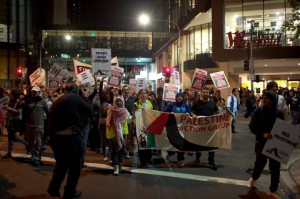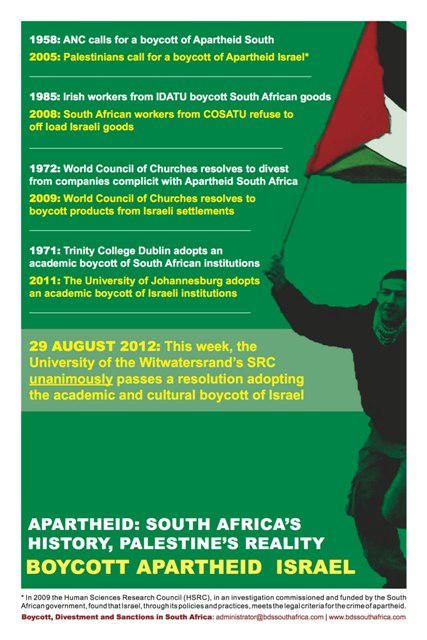In the vein of its previous documentary project presenting a montage of 24 hours of life in Berlin, the German Zero One film production company has been planning a similar venture on Jerusalem.
Berlin-based Zero One Film will work alongside Palestinian producer Daoud Kuttab and newly founded Israeli prodco 24 Communications. The latter is a joint venture between Israeli prodcos Pie Films and Inosan, which worked on the original version of HBO hit In Treatment.
Medienboard Berlin Brandenburg and Jerusalem Film Fund are backing 24h Jerusalem and the producers hope to secure the remaining €400,000 (US$500,000) of its €2.4m budget at MipTV this week.
Palestinian directors have now pulled out of the project – they were unaware of the presence of the Israeli production company, nor of backing from the Jerusalem Film Fund, which is in turn funded by the Jerusalem Development Authority. Current activities of the JDA include expropriating Palestinian land in East Jerusalem for parks. The JDA received “40 million NIS in 2005 to develop green spaces around the Old City of Jerusalem”.
Designating urban space as a national park is not only easier but cheaper too, the state having no obligation to compensate owners.
The Jerusalem municipality leaves the creation of these parks to the National Planning Authority (in the Ministry of Interior), Bimkom noted, which deals more with the protection of nature and heritage than the rights of Jerusalem’s residents.
…
The disparity between the management of space for West Jerusalemites compared to their counterparts in the east is stark, with national parks notably absent from the west.
“The Palestinian residents of Jerusalem are crowded and they suffer from extreme neglect and shortage of public infrastructure,” Bimkom architect, Efrat Bar-Cohen, said in a statement.
“The residents are in desperate need of space by which they can improve their quality of life, even if slightly.”
The building of the park will have ramifications beyond the strangling of Issawiya and A-Tur residents.
It will stretch into the E1 area of the West Bank, which represents an important reserve of space for Palestinian development, creating a string of Jewish Israeli-only settlement between the Old City and Ma’ale Adumim settlement.
Elad Kandl is director of the Old City projects at the Jerusalem Development Authority, whose website describes their work as rehabilitating and conserving the Old City.
He expressed succinctly Israel’s aim of curbing Palestinian development in Jerusalem. “When you make it a national park,” he told The Jerusalem Post in reference to open space, “you keep the status quo.”
The JDA, which operates under the 1988 Jerusalem Development Authority Law, was established to further entrench Israeli control over the city and is also involved in the Jerusalem light rail project.
Indeed, the Prime Minister’s Office and the mayor of Jerusalem sponsored a JDA program to work toward this goal. On its website the JDA is very clear about the role of the Jerusalem light rail project, stating that “The investment in the light railway project was one of the government’s key strategies to empower Jerusalem as a capital.”
The JDA is also an instrumental actor in the proposed construction of 1,400 new housing units in the Gilo Jewish settlement colony, located near Bethlehem in occupied East Jerusalem.
In this light, the involvement of the JDA in the 24h Jerusalem project clearly designates the film as unacceptable normalisation with the Israeli occupation.
The Palestinian Campaign for the Academic and Cultural Boycott of Israel (PACBI) has defined normalization specifically in a Palestinian and Arab context “as the participation in any project, initiative or activity, in Palestine or internationally, that aims (implicitly or explicitly) to bring together Palestinians (and/or Arabs) and Israelis (people or institutions) without placing as its goal resistance to and exposure of the Israeli occupation and all forms of discrimination and oppression against the Palestinian people.” [2] This is the definition endorsed by the BDS National Committee (BNC).
One Palestinian participant in the 24h Jerusalem project, Enas aL-Muthaffar, made clear his objections to the film project in an open letter on August 25th. He reveals that he was not informed at all about the Israeli production partner. Nor were the Palestinian directors to be involved in the editing process.
To whom It May Concern,
When Kuttab Productions first contacted me early July, it failed to mention that Israel is part of this project, although I specifically inquired about this issue. And then again, you sent me an email on July 9th, which also failed to mention that Israel is in fact part of your film production. I only knew about Israel being a co-producer of Jerusalem 24 when I asked specific technical questions about the characters, crew and the editing phase. I was surprised to know that the selected filmmakers are only requested to film on September 6th and that we have no say in the editing phase. Then, you said: The editing phase will happen in Germany where the Palestinian and the Israeli films will be edited in one feature length documentary. This is not information that can simply be passed on in such a way!
I reject to be part of Jerusalem 24: a German/ Israeli/ Palestinian co-production for the following two main reasons:
· I respect and support Palestinian civil society campaign for Boycott, divestment and sanctions against Israel until it complies with International law and respects Palestinian rights.
· I refuse to be part of a peace propaganda machine that continues to ignore Israel’s cruel colonization of Palestine.
There is a longer list of reasons related to the current steps undertaken by Israel that aim at changing the demographic, social and cultural composition of the city of Jerusalem – to name few:
· Advocating the largest act of de-population of East Jerusalem since 1967.
· Continuing expansion of illegal settlements.
· Renewal of closure of East Jerusalem Institutions.
· Building restrictions and home demolitions.
· Revoking residency rights and denying family reunification.
· Continued illegal diggings under al-Aqsa mosque compound.
There is no way in which I can separate my art from who I am, from my life, from my duty to resist everything and anything that doesn’t acknowledge my right to exist on my land in freedom and dignity.
Regards,
Enas I. aL-Muthaffar
Enas’ stance is confirmed in an Al Akhbar piece [Google translation]:
Yesterday, I sent a group of Palestinian institutions and individuals working in the field of culture and art message to «Book of production» declare the absolute rejection of various forms of normalization with the occupier and «standing in the face of attempts to penetrate the cultural front as the line of the clash with the basic occupation, and intellectuals were and will remain the spearhead in the clash of cultures and civilizations with brute occupation force.
Haidar Eid further affirms terms of the PACBI boycott relevant to the joint film project [Google translation]:
That all meetings and projects that combine between the Palestinians and the Israelis must be placed in the proper context against the occupation and other forms of Israeli oppression of the Palestinians, and most importantly that these meetings be pro-boycott by directives issued by the National Committee of the province.
According to Amira Hass, 20 directors, including Israelis, have now pulled out of the film project in support of the cultural boycott and filming, scheduled for September 6, has been halted.
Related Links
24 hours in Jerusalem without inside directors : Omar Barghouti comments
Daoud Kuttab is out of step with and misrepresents PACBI and directors’ reasons for boycotting this normalising film.
 From the Palestine Action Group Sydney:
From the Palestine Action Group Sydney: Don’t Play Apartheid Israel [DPAI] would like to extend our warmest congratulations to the Student Representative Council [SRC] of the University of the Witwatersrand on its
Don’t Play Apartheid Israel [DPAI] would like to extend our warmest congratulations to the Student Representative Council [SRC] of the University of the Witwatersrand on its